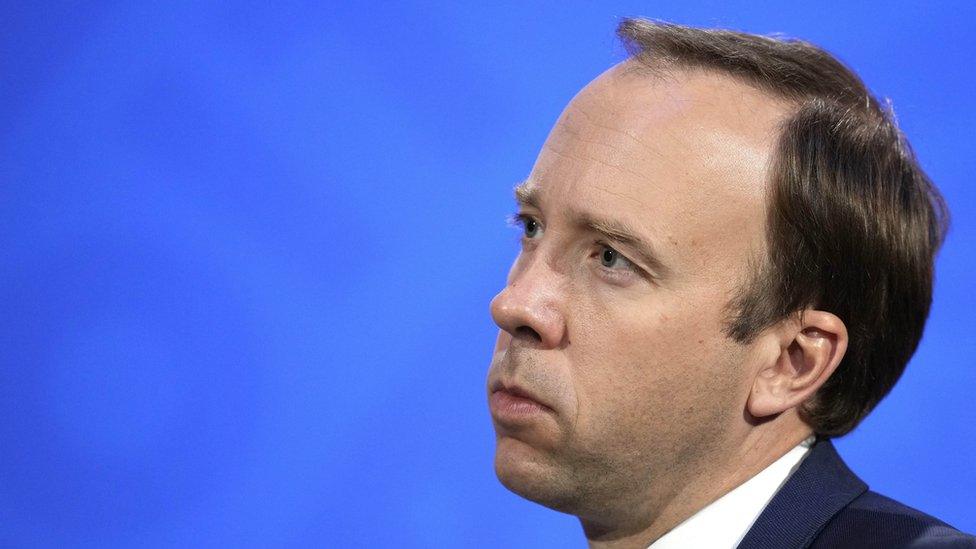Matt Hancock caves in over vitamins for poor children
- Published

Health Secretary Matt Hancock has caved in to a legal action over providing vitamins and milk to some of the UK's poorest children.
Lawyers for a family denied weekly vouchers worth £4.25 had challenged the policy as discriminatory.
They said the ban unfairly affected ethnic minority children whose parents were not fully settled in the UK.
The challenge concerned the "Healthy Start" scheme supplying milk, vitamins and vegetables in England and Wales.
It explicitly aims to improve the diets of babies and toddlers in the poorest families in England in Wales - and so reduce the likelihood of lifelong chronic bad health.
However, under immigration rules, parents who do not have a final settled status in the UK - even if they are legally living or working in the country - are banned from receiving any of the UK's mainstream benefits.
In practice, the benefits ban applies to almost all migrants - including the partners or close relatives of British citizens - until they are later granted full rights of settlement.
That legal bar to benefits meant applications from families for the Healthy Start milk and vitamin vouchers were automatically rejected by the Department of Health, even if they met the poverty test at the heart of the scheme.
Lawyers for a family with a one-year-old launched a judicial review of this rule.
The child's mother was lawfully living in the UK and her household income was 40% lower than the threshold for claiming benefits.
But officials denied her vouchers because of her non-permanent immigration status, despite the baby having British citizenship through the father, her ex-partner.
Her lawyers argued that the Department of Health's refusal to consider the mother's case unlawfully discriminated against children from black and ethnic minority backgrounds - and it was also contrary to the scheme's aims of improving the health of the poorest in society.
'Essential support'
In February, the High Court ordered that the case against the policy overseen by Mr Hancock should go to a full hearing - but ministers have now given up fighting the challenge.
Officials have been told to provide the family with vouchers and have committed to a full review of how the scheme works to ensure it is not discriminatory.
Olivia Halse, the claimants' solicitor, said the victory means that hundreds, if not thousands, of children previously denied access to the support would now be eligible.
"This is a great outcome for some of the most disadvantaged children in our society who should have never been excluded from accessing this essential support in the first place," said Ms Halse.
"We hope this extension will go some way toward tackling health inequalities and child food poverty in the UK and help provide these children with a healthy start in life."

As health secretary, Matt Hancock oversaw the policy
The outcome of the case is the latest in a string of climb downs by the government over the impact of the benefits ban on children born to lawfully-resident migrant parents.
Last year, the government extended the free schools meal scheme to cover all migrant children as it faced a looming High Court challenge - and in 2019 it similarly extended funding for nursery school places.
The Department of Health and Social Care has been contacted for comment.
